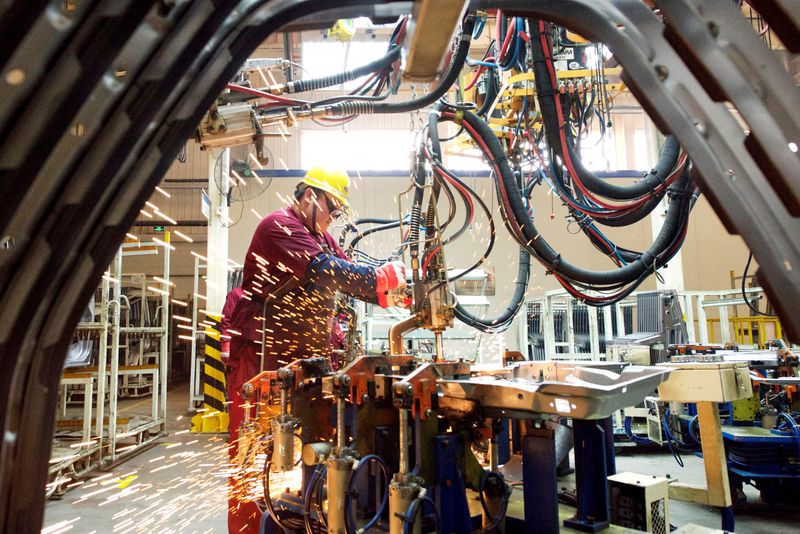By Leika Kihara
TOKYO (Reuters) – Asian manufacturing activity stagnated in October as a recovery in China failed to provide a major boost to regional factories, private surveys showed. This was a discouraging sign for policymakers bracing for a possible escalation in trade tensions between the US and China.
The figures come as the International Monetary Fund (IMF) warned of growing risks to Asia's economic prospects from trade fragmentation, the problems in China's real estate sector and the possibility of further market turbulence.
Factory activity in Japan and South Korea contracted due to weak domestic demand and slowing growth in the US, European and Chinese markets, the Purchasing Managers' Index (PMI) surveys showed on Friday.
However, in a glimmer of hope, Chinese manufacturing activity returned to growth in October, helped by a slew of stimulus measures rolled out by Beijing to prop up the fragile economy.
The Caixin/S&P Global Manufacturing PMI rose to 50.3 in October from 49.3 the month before, a private survey showed, beating analyst forecasts in a Reuters poll of 49.7.
The outcome echoed an official survey on Thursday that showed Chinese manufacturing activity grew for the first time since April, a sign the economy was stabilizing.
But Krishna Srinivasan, director of the IMF's Asia and Pacific department, warned that risks of deflation in China were rising and further steps were needed to resolve real estate sector problems and boost consumption.
“China has enormous influence on what happens in Asia,” he told Reuters on Friday. “If China slows down, the rest of Asia slows down,” he said, adding that the country “must move away from an investment and export-oriented model to a consumption-oriented model.”
Au Jibun Bank's Japan Manufacturing PMI fell to 49.2 in October from 49.7 in September, falling at the fastest pace in three months due to weak domestic and foreign demand.
The index remained below the 50.0 threshold that separates growth from contraction for the fourth month in a row.
South Korea's PMI stood at 48.3 in October, unchanged from the previous month and fell for the second month in a row, with output falling the most in 16 months, a private survey showed.
Factory activity also contracted in Indonesia and Malaysia in October, but increased in Taiwan and Vietnam, the surveys showed.
(Reporting by Leika Kihara; Editing by Shri Navaratnam)

